|
Workers decorate an office of the Kurdistan Communist Party - Iraq. With one lonely member of parliament, one might think the KCP is a marginal force, but its influence far outstrips its electoral performance. | Kurdistan TV via KCP SULAYMANIYAH, Iraqi Kurdistan—For those who have followed the development of the Kurdistan Regional Government (KRG) in northern Iraq since its formation after the Kurdish rebellion of 1991, the names Jalal Talabani and Massoud Barzani have been inextricably tied to the region’s politics. Their respective parties, the Patriotic Union of Kurdistan (PUK) and Kurdistan Democratic Party (KDP), have long dominated the political landscape, dividing the territory of the autonomous region between themselves after a period of intense inner-Kurdish warfare in the 1990s. Today, they each maintain their own Peshmerga military formations, and the KRG often appears to function as a one-party state, though paradoxically, there are two of them.
Then there is the oldest party in the Kurdistan Region, the Kurdistan Communist Party. With one lonely MP, one could be forgiven for having the impression that the Communists are a marginal force. The party’s influence and importance to the region, however, far outstrip its electoral performance. The rich history of the Iraqi/Kurdistan Communist Party The Kurdistan Communist Party was technically founded in 1993, although in reality this simply meant the branch of the Iraqi Communist Party (ICP) in what had become the Kurdistan Region was now solely responsible for its own affairs in the new de facto independent area. The Iraqi party dates its foundation back to 1934. It played a vital role in the formation of the country’s working-class organizations, including the establishment of trade unions. The party has experienced periods of legality and illegality throughout its existence and had a contradictory relationship with the Ba’ath Party that ruled the country for nearly four decades. In 1963, the U.S.-backed Ba’athist coup that deposed Abd al-Karim Qasim led to thousands of Communist Party members being slaughtered in the following days, with party leader Salam Adil among those executed. However, in the mid-1970s, relations between the Communist Party and the Ba’athists warmed somewhat, with the Communists initially viewing Saddam Hussein positively when he came to power, even referring to him in glowing terms as Iraq’s own variant of Fidel Castro in the aftermath of nationalization campaigns. This led to their inclusion in the National Progressive Front in 1975, which meant accepting the Ba’ath Party’s dominance over Iraqi political life. However, certain contradictions soon began to appear irreconcilable. The Communists were proud of their heritage as a multinational party and advocated an Iraqi state with full rights for both of its dominant nations, Arabs and Kurds. This had initially been the line of the Qasim government that had taken power in 1958, which the Communists generally supported. By contrast, the Ba’athist ideology could make no room for Kurds in its Arab nationalist orientation unless they agreed to a position of subservience and second-class citizenship.
In Sulaymaniyah, where the Patriotic Union of Kurdistan (PUK) is the dominant political force, I was able to speak with the Deputy Secretary-General for the Communist Party in the governorate, Hawre Gorran. On the right of nations to self-determination Gorran begins by making it clear that the KRG should be united, not divided into two camps that are each under the control of either the KDP or PUK. He is clear in his opposition to the vast privatization that has taken place under each party in the areas of health, education, and electricity, but also keenly aware that division between the Talabani and Barzani cliques has been catastrophic. “The Kurdistan Communist Party played a very important role in mediating between the KDP and PUK during the civil war that was fought between 1994 and 1997. Our leader at that time, Aziz Muhammad, helped bring them together to end the conflict,” he says. Muhammad, who passed away in 2017, was a legendary figure on the Kurdish and Iraqi left and was symbolic of the Communist Party’s approach to unity between Arabs and Kurds, serving as leader of the Iraqi party from 1964 to 1993, then of the independent Kurdish party after that.
When asked about the KCP’s relationships with other communist parties in the region who may oppose Kurdish independence, Gorran attempts to toe a diplomatic line, saying it would probably be better if I ask those parties why they take such a position. In the end, however, he says, “It is clearly related to chauvinism. This is not a communist position. It has nothing to do with Lenin’s conception of a nation’s right to be self-determining.” On the reactionary role of the United States in Kurdistan This question was wrapped up in another extremely important point that needed to be clarified, which is the relationship between Kurdistan as an oppressed nation and the role of the United States in the region. Much of the apprehension that I have often encountered in regards to the Kurdish question from leftists and those calling themselves communists is that Kurds are merely auxiliaries of U.S. imperialism in the region, and therefore their national liberation struggle is not worthy of support. But the KCP makes it clear that they are opponents of U.S. imperialism, and the party is not afraid to speak out against the machinations of Washington in the region or criticize certain decisions taken by parties or organizations they otherwise have friendly relations with. Hawre Gorran says, “The U.S. is working for its own interests all over the Middle East. It doesn’t care about the Kurdish people. For example, they opposed the 2017 independence referendum, and when the Iraqi government captured Kirkuk, an agreement was signed for oil extraction there that clearly benefits imperialism.”
Gorran says in response, “Any agreement that is made has to take people’s needs into account. This agreement offers no protection for the people. The United States and Russia are playing a role in controlling resources in the Middle East. Any force in Rojava should be prioritizing and protecting people’s interests.” On women’s liberation Perhaps the most impressive, progressive element of that struggle in northern Syria, as well as its most concrete achievement, has been the central role that women have played in it. Indeed, the image of the fearless Kurdish woman fighter has become prevalent across the world in recent years as a result. However, there is nothing necessarily new about women playing roles equal to men in the leftist movement in Kurdistan. According to Hawre Gorran, equality of women is “extremely important” to the KCP. He elaborates, saying, “It’s essential that women are not only members of the party, but that they are able to elevate themselves to be leading cadre. In our Central Committee, it is a rule that at least 25% of members need to be women.”
I ask what stands in the way of changing these backward, patriarchal relations. “The mentality of people is a big obstacle. Often, it is their interpretation of religion that makes people believe that things are naturally supposed to be this way.” On the struggle for democracy in Kurdistan If women’s rights in the Kurdistan Region of Iraq continue to be stalled, and only incremental progress has been made, then what does this say about the state of democracy in general in the region? Gorran says, “If we look at the history of any country, we can see that the democratic struggle takes a long time. We had the struggle against the Ba’athist chauvinists, then the inner-Kurdish war. Democracy has not yet reached a higher level. For instance, Massoud Barzani has no official position, yet he still remains the main point of contact for everything in the KRG. Therefore, he effectively runs everything.” He is also eager to point out that while parties such as the PUK and KDP continue the ruling family’s dominance in leadership positions, the KCP has a different idea of democratic norms. “We have changed our General Secretary four times since our party was founded in 1993. This is very different from the other parties.” This kind of non-democratic management of the major parties also has the effect of blurring the lines between the government and what should be fighting organizations of the working class, the trade unions. Gorran says that “Many unions were created here after 1991. Some are not controlled by the PUK or KDP, but some are. For example, they control the Journalists’ Union.” This was quite a revelation. It certainly doesn’t seem far-fetched to believe that the Barzani and Talabani families having this degree of influence over the union of the region’s press workers would translate into—or help to reinforce—their control over the media and dissemination of information. Gorran says that the fighting power of many unions is compromised by these relationships, thus helping maintain the impression that there is more democracy than there often is. “One union, for instance, had a demonstration at a government office. But this union is allied to the PUK. It, therefore, becomes a sort of controlled opposition.” According to Gorran, “You used to only be able to get public sector jobs by being a member of one of the two main parties. Nowadays, this is also applying to the private sector.” In December 2020, anger and frustration at the government’s corruption, nepotism, mass unemployment, and non-payment of salaries to public sector workers for several months led to a series of demonstrations across Sulaymaniyah. In the crackdown unleashed by security forces, ten people were killed. For the Communist Party, these demonstrations were certainly worthy of support, and they played a key role in amplifying the voice of the protesters and rallying to their side, even as they cautioned against the use of violence as a tactic. After nine days, however, the movement seemed to run out of steam, not least because of the harsh repression unleashed by the authorities. “After these protests, only one or two politicians resigned. This shows that we have a long way to go.” Toward a communist horizon in Kurdistan Far from being a political party that can be summed up as operating on the fringes of Iraqi Kurdistan’s social life, I found that in reality, the Kurdistan Communist Party is continuing to build upon its rich history of militant, working-class struggle. Its necessity surely appears validated by the current situation in the region, one in which the democratic struggle feels stifled, and in which the emerging opposition forces of recent years have ebbed in popularity.
I’m reminded at this point of something Hawre Gorran said as we were wrapping up the interview. Speaking about the importance of maintaining a Marxist perspective in the 21st century, he said “It’s essential that we stay true to our principles. We know that only socialism is the answer to not only Kurdistan’s problems but those of the whole world.” AuthorMarcel Cartier is a critically acclaimed hip-hop artist, journalist, and the author of two books on the Kurdish liberation movement, including 2019’s Serkeftin: A Narrative of the Rojava Revolution, which was one of the first full accounts in English of the civil and political structures set up in northern Syria after 2012. This article was republished from People's World. Archives July 2021
0 Comments
Leave a Reply. |
Details
Archives
July 2024
Categories
All
|
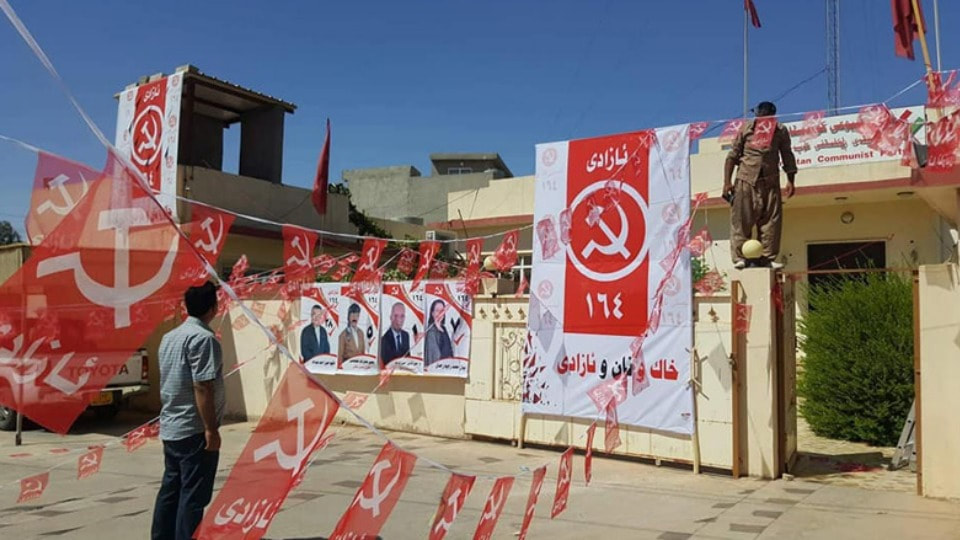
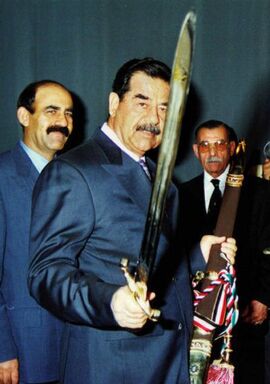
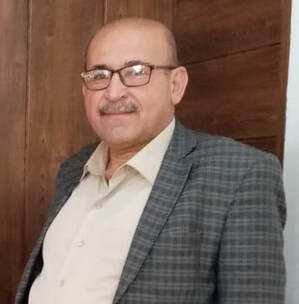
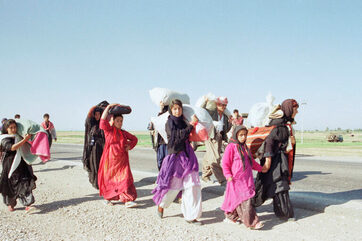
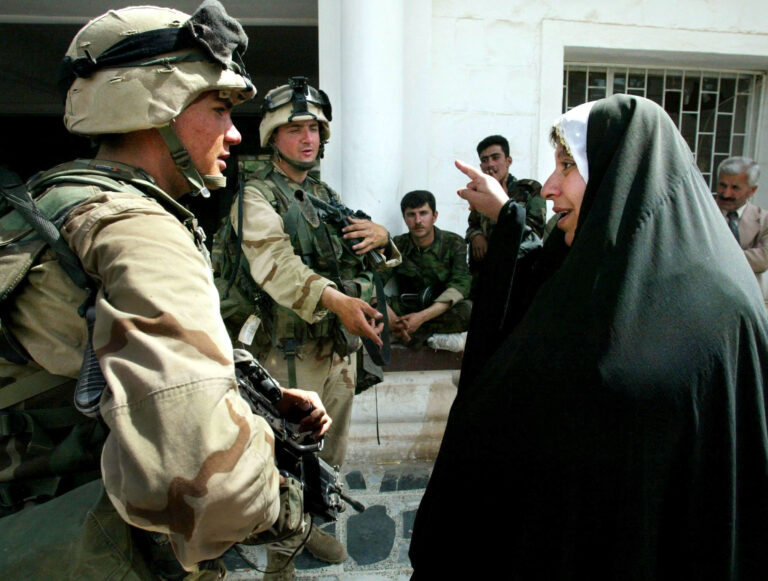
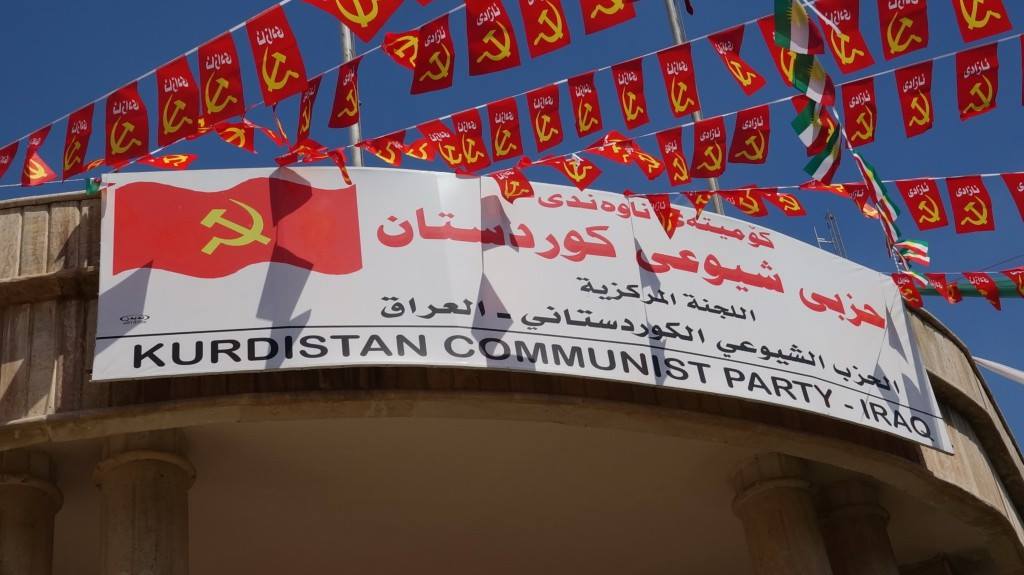
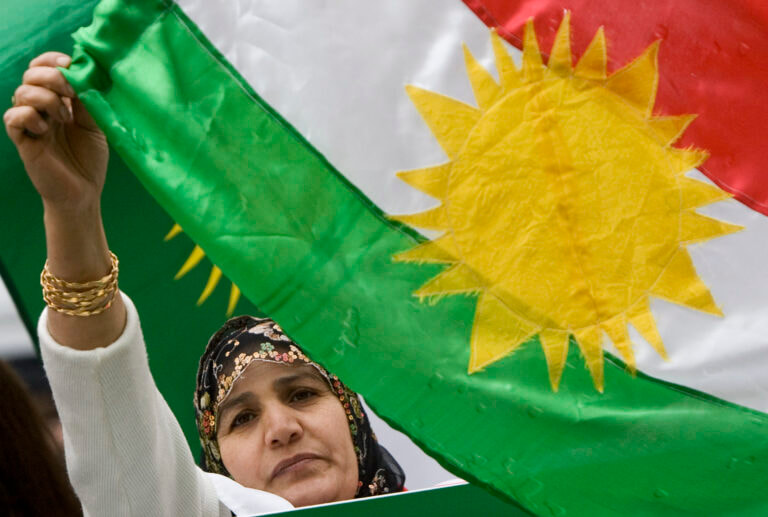
 RSS Feed
RSS Feed